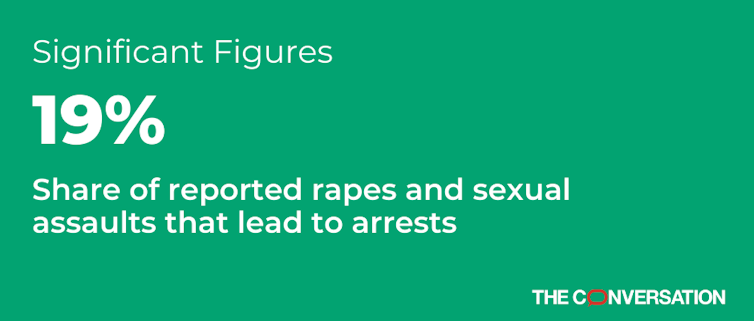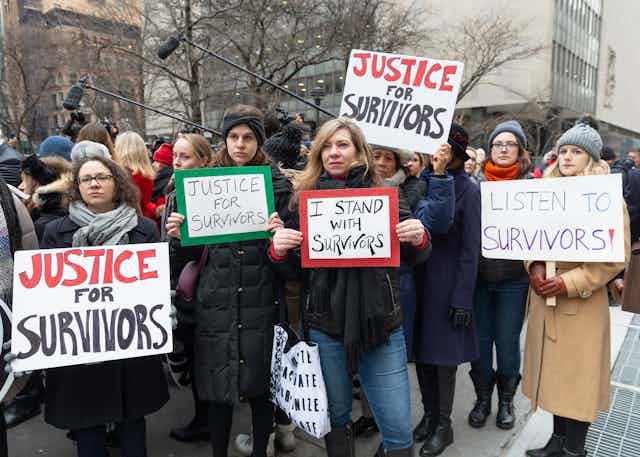
As experts in criminology and the justice system, we were surprised to learn that a jury voted to convict Harvey Weinstein on two counts of rape and sexual assault.
This surprise was based on our more than a decade of research on the attrition of sexual assault cases from the criminal justice system.
We know that most victims of sexual assault never report their attack to the police. For those that do report, the probability of arrest and prosecution of their assailant is small.
In fact, the overwhelming majority of cases reported to the police do not end in conviction, as evidenced by our recent research on sexual assaults reported to the police in six jurisdictions across the United States.
We found that many cases drop out at the investigation stage, with only 18.8% of rapes reported to the police resulting in an arrest. Slightly more than a third of the arrests of adults ended in a conviction. That’s just 6.5% of investigations.
What we can learn from the Weinstein verdict, and from the #MeToo movement more generally, is that perhaps the time has come to bolster the criminal justice response to sexual assault in ways that give sexual assault victims the procedural justice they deserve.
[You’re smart and curious about the world. So are The Conversation’s authors and editors. You can get our highlights each weekend.]

